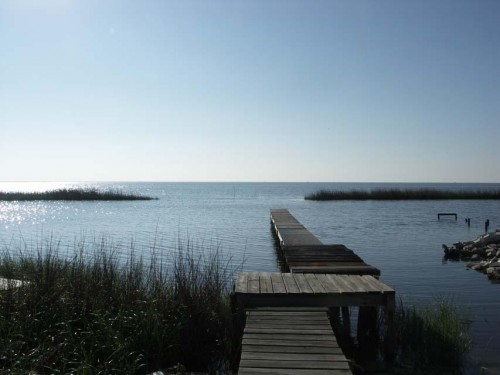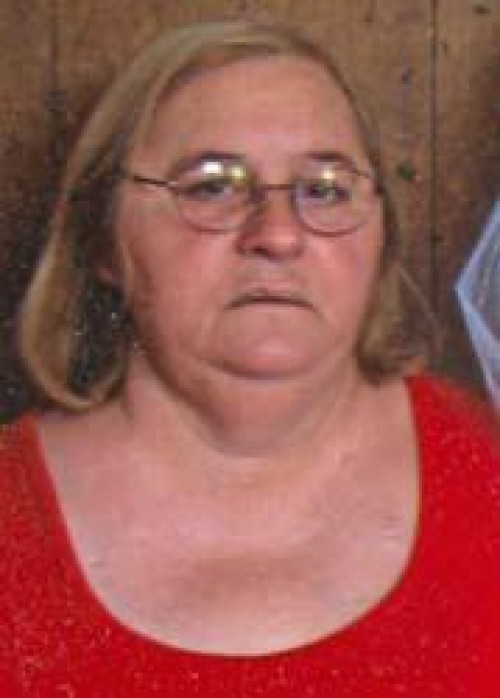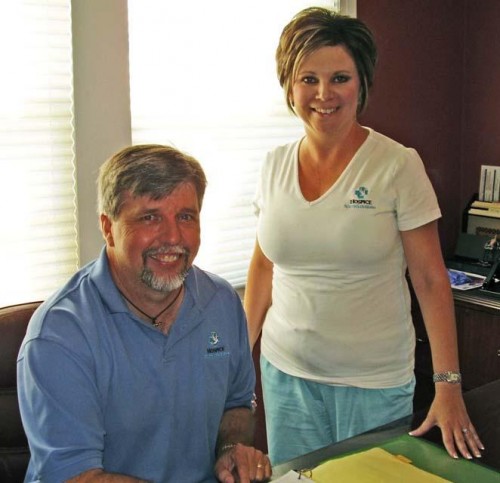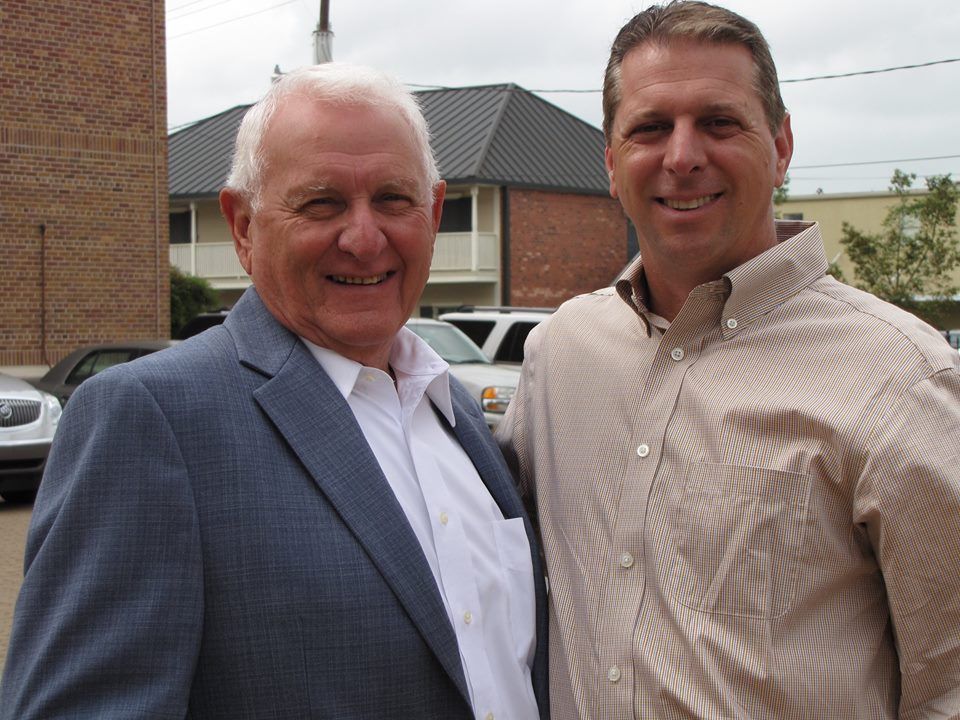
Proposed parish pipeline provides promise
May 3, 2011
Rebecca Cheramie
May 5, 2011Every story, every life, has a beginning, a middle and an end.
It’s the end of life that brings on declining health and with it a sense of dread, a fear of the unknown and an apprehension for what comes next.
Family members are suddenly thrust into the role of caregiver with little preparation, not knowing what to expect.
The staff of Hospice of South Louisiana helps those in the final stages of life and their families deal with those issues.
Dottie Landry began Hospice of South Louisiana in 1987. Through a series of sales that included Terrebonne General Medical Center, it is now owned by Glendale Healthcare of Mandeville.
Administrator Joseph Plunkett worked with Landry in the early years then left to work with cancer patients at TGMC.
“I was over about 80 employees and I was mainly administrative. I rarely got to talk to patients and families. It was always meetings, meetings, meetings all day long. By coming here I can go out and see my patients now,” Plunkett said.
According to the Hospice Foundation of America, hospice is designed to provide comfort, support and quality of life for patients in the end stages of life. Hospice neither prolongs life nor hastens death.
“Anyone who has a diagnosis of six months or less can be admitted into hospice. It’s a holistic approach where we provide nursing, a social worker and a chaplain. We provide any medical equipment and palliative medications,” Plunkett explained.
Palliative medications are those based on comfort care.
Nurse aides tend to personal care needs, social workers offer emotional support, counseling and access to community resources, chaplains provide spiritual guidance and volunteers compliment the care with companionship and assistance.
Hospice of South Louisiana can also do therapy when ordered and has 24 hour emergency support.
“A big misconception that people have is that they’re going to be admitted into hospice, be given medicine and be let go. A big thing we hear is, ‘Oh my mom is going to think we’re giving up on her.’ We don’t just put them in the bed and let them go,” said Patient Care Representative Lisa Adams.
Hospice is not the same thing as home health care. Plunkett explained home health care concentrates on treating a condition or injury that can show improvement. At some point, home health discharges the patient and visits are discontinued. Hospice continues until the end of life.
“We can go out and see the patient six times a day. Whatever the patient’s need is how often we go out and see them,” Plunkett said.
To be admitted into hospice, a physician must verify the patient’s prognosis of six months or less of life. The patient and caregivers must have an understanding of the prognosis and are no longer seeking aggressive treatment.
Admitting conditions include cardiac disease, neurological disease, Alzheimer’s/dementia, Parkinson’s/ALS, renal disease or failure, liver disease, stroke, blood disorders, debility, pulmonary disease, AIDS, cancer or a failure to thrive.
“One of the things Medicare is now doing is we have to make sure we determine a differentiation between terminal and chronic. If we have a patient that we’ve had more than six months, we have to have a physician or nurse practitioner go in and differentiate whether the condition they have is a chronic condition that isn’t getting any worse, or if because of the care that we’ve given, it’s actually gotten better. If that’s the case, we have to discharge them,” Plunkett said.
Hospice of South Louisiana is working with the Veterans Administration’s “We Honor Veterans” campaign. The program is designed to assist hospice organizations in the unique care of those who served their country.
“Veterans have special needs because of things they went through in battle. We’re already getting most of the VA patients in the area, but we felt obligated to learn more about how to take care of these patients better. It’s really helped us out a lot to know what they went through and how we can help them,” Plunkett explained.
“It’s different taking care of patients from World War II to the Korean Conflict to the Vietnam War to the Persian conflicts now. Each war had its own special circumstances and it helps us to know those differences and know how to approach them differently.”
“We are looking for volunteers who are veterans. They can go out and share their experiences as veterans and give the patients an opportunity to get things off their chest and vent with veterans who have been through the same thing,” Adams added.
Volunteers submit to much of the same criteria Hospice of South Louisiana employees do. Anyone can become a volunteer but they go through a screening process, training and a background check.
“We couldn’t live without our volunteers. We have a baker who bakes birthday cakes for our patients because when you have a birthday in hospice, it’s a big deal. We have someone who does filing for us. We have a variety of people who volunteer. They do different things for us and combine their talents,” Adams said.
Plunkett explained that ultimately hospice is designed as much for the family as it is for the patients and that it’s unfortunate that most doctors don’t admit patients into hospice until they have less than a week to live.
“It’s very difficult for us to do what we can do in less than a week. One of the things we do is we go in and teach the family how to take care of the patient so they don’t have to take them to the hospital or they don’t have to put them in a nursing home.”
“After our patient dies, we follow the family for a year. We check on them and make sure they’re going through the grieving process properly. My chaplain and my social worker go out and assist them and we also have a bereavement group that meets every other week that families that are having problems accepting the death can go to,” Plunkett said.
“Just because you’re in hospice, you’re not giving up. Why not have someone there to help you? Why be home alone? Hospice is available so why not use it? We want them to have quality of life. Whatever works for them is what we’ll do,” Adams said.
Quality of life at the end of life is the goal of Hospice of South Louisiana Administrator Joseph Plunkett and Patient Care Representative Lisa Adams. JENNIE CHILDS









